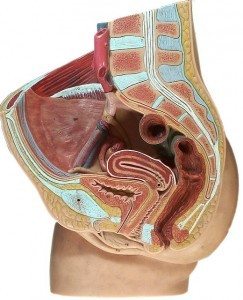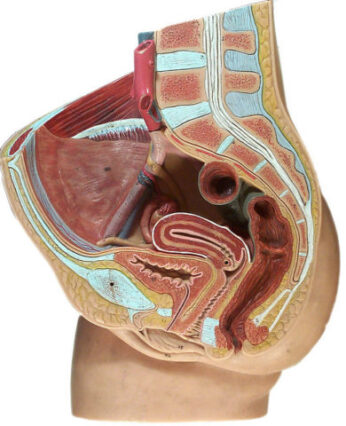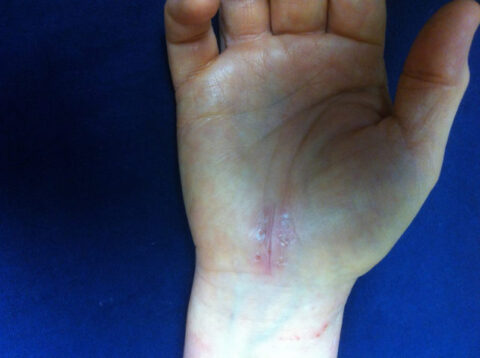 If you pay attention to medical news, you may have heard a bit about pelvic organ prolapse (POP).
If you pay attention to medical news, you may have heard a bit about pelvic organ prolapse (POP).
While it isn’t usually talked about very much, pelvic organ prolapse is a very prevalent problem among women.
Recently, complications associated with transvaginal mesh POP repair surgeries have brought it out of the shadows, alerting more of us about the importance of pelvic health.
Preventing pelvic organ prolapse by learning how to keep your pelvis healthy is the best way to avoid the complications we’ve been hearing so much about, and if you already have POP, there are safer treatments for you than mesh surgery.
Pelvic Organ Prolapse: How it Happens
Pelvic organ prolapse is caused by weakness or stretching in the pelvic floor, which supports pelvic organs. POP occurs when that weakness allows one or more of those organs to drop away from its normal position and even bulge into the vagina.
Symptoms can include pain and pressure in the pelvic area and urinary and bowel problems, among others. Women may feel a lump in the vaginal area or see tissue protruding out of the vagina.
Are You at Risk?
If you have children, it is safe to assume that you are at risk, since pelvic organ prolapse affects half of all childbearing women at some point in their lives.
Other factors can raise your risk of POP, such as a history of heavy lifting or high-impact sports, obesity, chronic coughing or frequent constipation.
While the risk of pelvic organ prolapse rises in women older than 50, some women are affected well before that age.
How To Reduce Your Risk
Exercise is essential in preventing the pelvic muscle weakness that causes pelvic organ prolapse.
- Do Kegel exercises regularly, especially during and after pregnancy and as menopause approaches.
- Maintaining core strength is important also. Pilates, moderate weight training, walking, swimming or low-impact aerobics can help.
- If heavy lifting cannot be avoided, good body mechanics can minimize pelvic floor harm.
Consulting a physical therapist or fitness professional can help you learn more about these important preventive measures.
Other things you can do to minimize your risk include maintaining a healthy body weight to reduce stress on the pelvic floor and eating a well-balanced diet to ensure good nutrition for tissue health. If you smoke, quit, since tobacco use can contribute to pelvic floor deterioration.
Treatment Options
If you already have pelvic organ prolapse, physical therapy may help. Typically, therapy focuses on pelvic floor and core muscle strengthening. Specialized weights and biofeedback may be used to enhance results.
If you’re overweight, losing those extra pounds can relieve symptoms, as can using a pessary. This is a medical device, generally made of plastic or silicone, that you place inside your vagina to lend support to prolapsed organs.
In severe cases, surgery may not be avoidable. However, there are options available that don’t carry the high risk of complications associated with transvaginal mesh procedures.
If you aren’t aware of those risks, here are the facts:
- The FDA has issued safety alerts due to thousands of reports of serious problems after mesh implant surgeries, such as erosion, organ perforation, contraction of the mesh, and infections.
- The FDA advises that patients and surgeons consider traditional pelvic organ prolapse repair surgeries that don’t use mesh.
- Some women have filed a vaginal mesh lawsuit because they experienced the serious complications of the mesh.
Our guest contributor, Elizabeth Carrollton, writes about defective medical devices and dangerous drugs for Drugwatch.com.
Professionally, I pursued my Masters Degree in Family Therapy at Texas Tech — where I obtained invaluable expertise and experience helping people with a wide variety of physical and emotional health issues. Personally, I think it's useful when people realize that they're not the only one going through a difficult time. So any time that I think my personal health experiences would be helpful to someone else going through the same thing, I will share my story here. With health issues that I've personally experienced (like Endometriosis, Lyme Disease, Hysterectomy, Skin Cancer, Ganglion Cysts, Autism, and other topics that very few people enjoy talking about) and health products that I've found beneficial (like sleep aids, essential oils, and medications)… I do my best to provide my own raw and honest firsthand experiences that I think others would appreciate hearing about and (hopefully) find helpful. I'm grateful that I have a number of friends who have also been willing to share their very personal stories here — regarding their own physical and emotional health. When I'm not writing about health topics, you will find me sharing Good News & Fun Times as publisher of The Fun Times Guide (32 fun & helpful websites).








